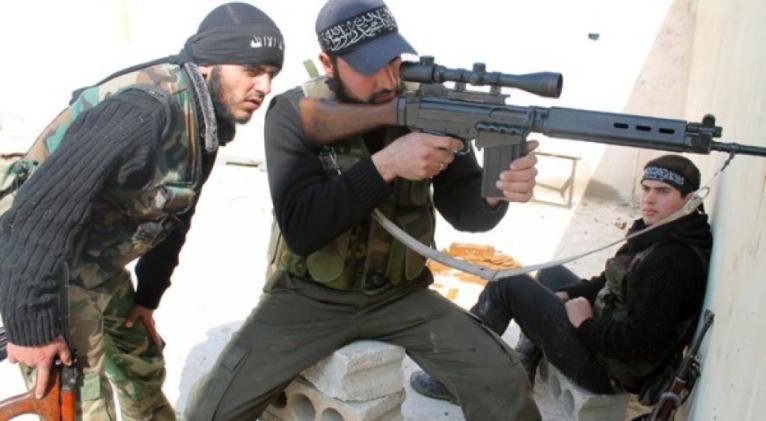12,000 Foreigners Fighting in Syria
especiales

More than 12,000 foreign fighters from 74 countries have gone to fight in Syria, according to a new report by a leading expert on terrorism.
Professor Peter Neumann, director of the International Center for the Study of Radicalization at King's College London has said that 60-70 percent are from the Middle East, and 20-25 percent from the West.
He says the Syrian conflict has sparked the most significant mobilization of foreign fighters since the 1980s war in Afghanistan where over 20,000 foreigners participated in the fighting.
According to Neumann's study, among Western countries, there are about 700 foreign fighters from France, more than 500 from Britain, 400 from Germany, 300 from Belgium and 100 from the United States.
He said on Monday the Afghan conflict produced al-Qaida and the Syrian conflict is now forging new networks that would carry out terrorist attacks.
"I am confident ... that out of that foreign fighter mobilization, over the course of the next generation there will be terrorist attacks."
According to Neumann's study, among Western countries, there are about 700 foreign fighters from France, more than 500 from Britain, 400 from Germany, 300 from Belgium and 100 from the United States.
"If you take into account per capita population, the most heavily affected countries are the Belgians, the Netherlands and the Scandinavian countries - Denmark, Sweden, Norway - which are small countries but have produced 50-100 fighters each," he said.
In a previous article written by Neumann he warned that the group is not a homegenous one and in the only authoritiative study of the issue, one in nine former fighters subsequently became involved in terrorist activity.
"This does leave a majority who do not wish to become involved with terrorism, for whatever reason. In many cases they are disillusioned, psychologically disturbed, or just tired," said Neumann and coauthors.
Neumann suggests that "de-radicalization" programs along with monitoring are the best option for suspected militants returning home, rather than imprisonment.
Professor Neumann is a leading consultant to the United Nations Security Council.













Add new comment